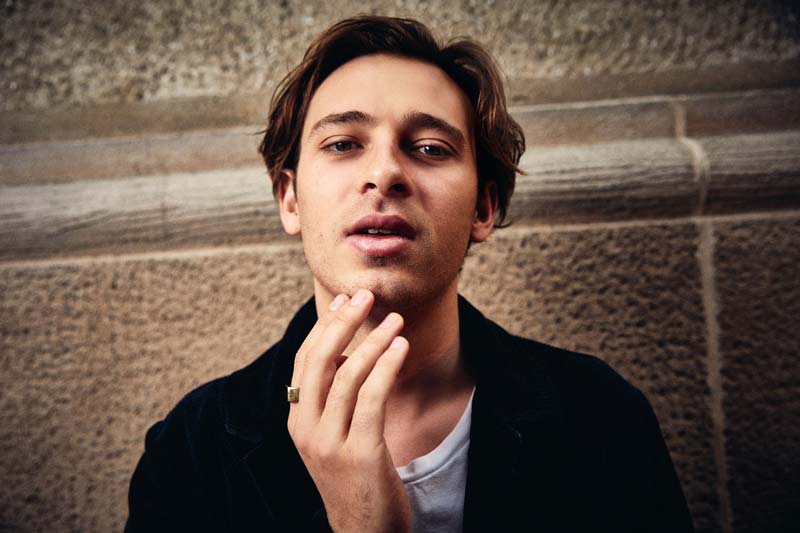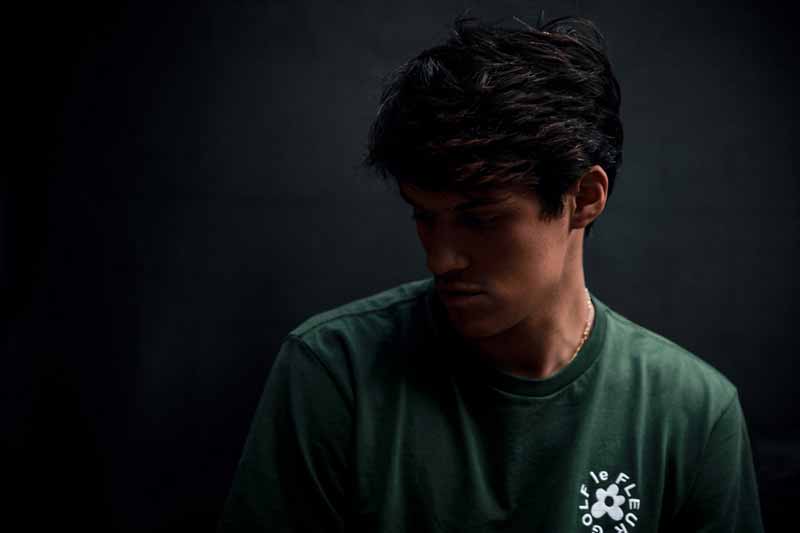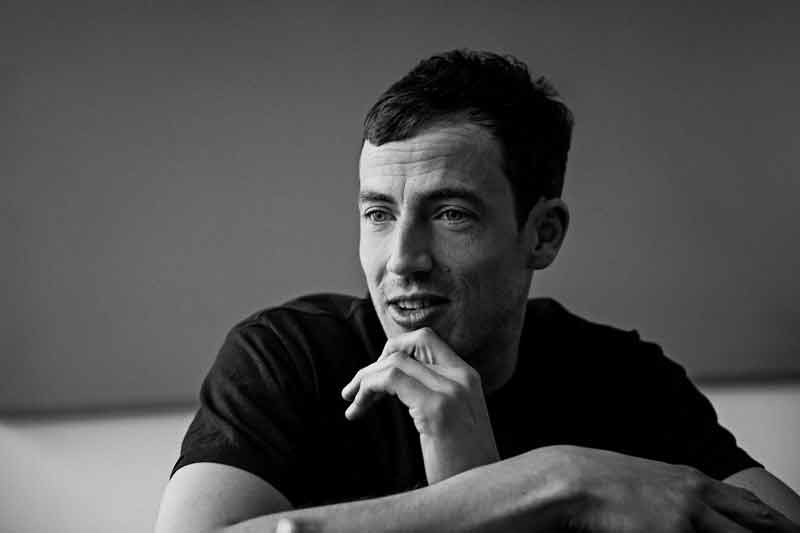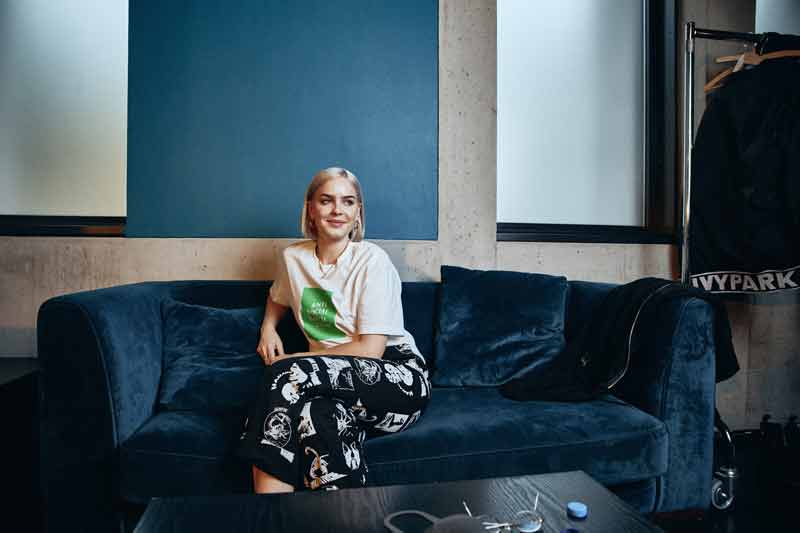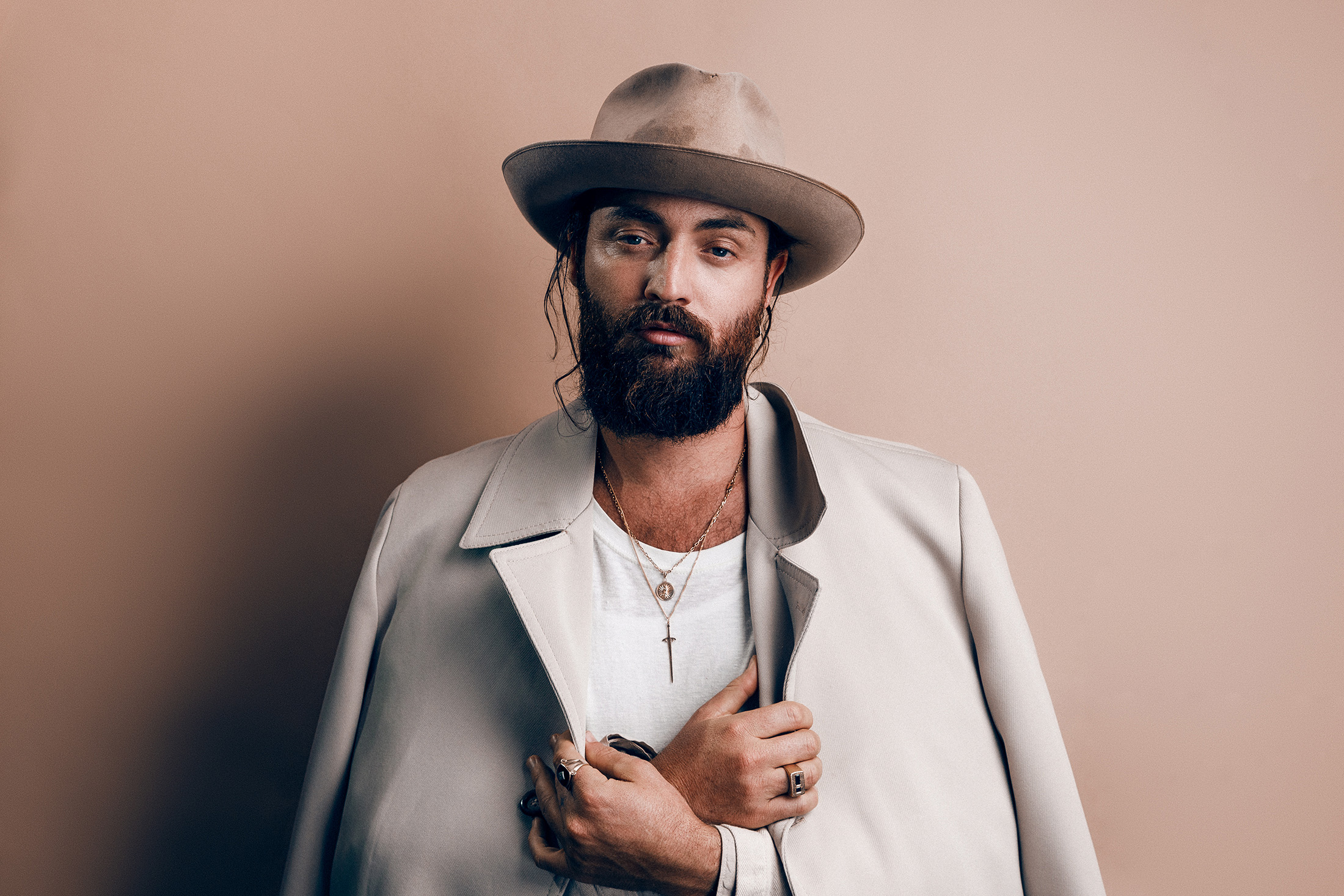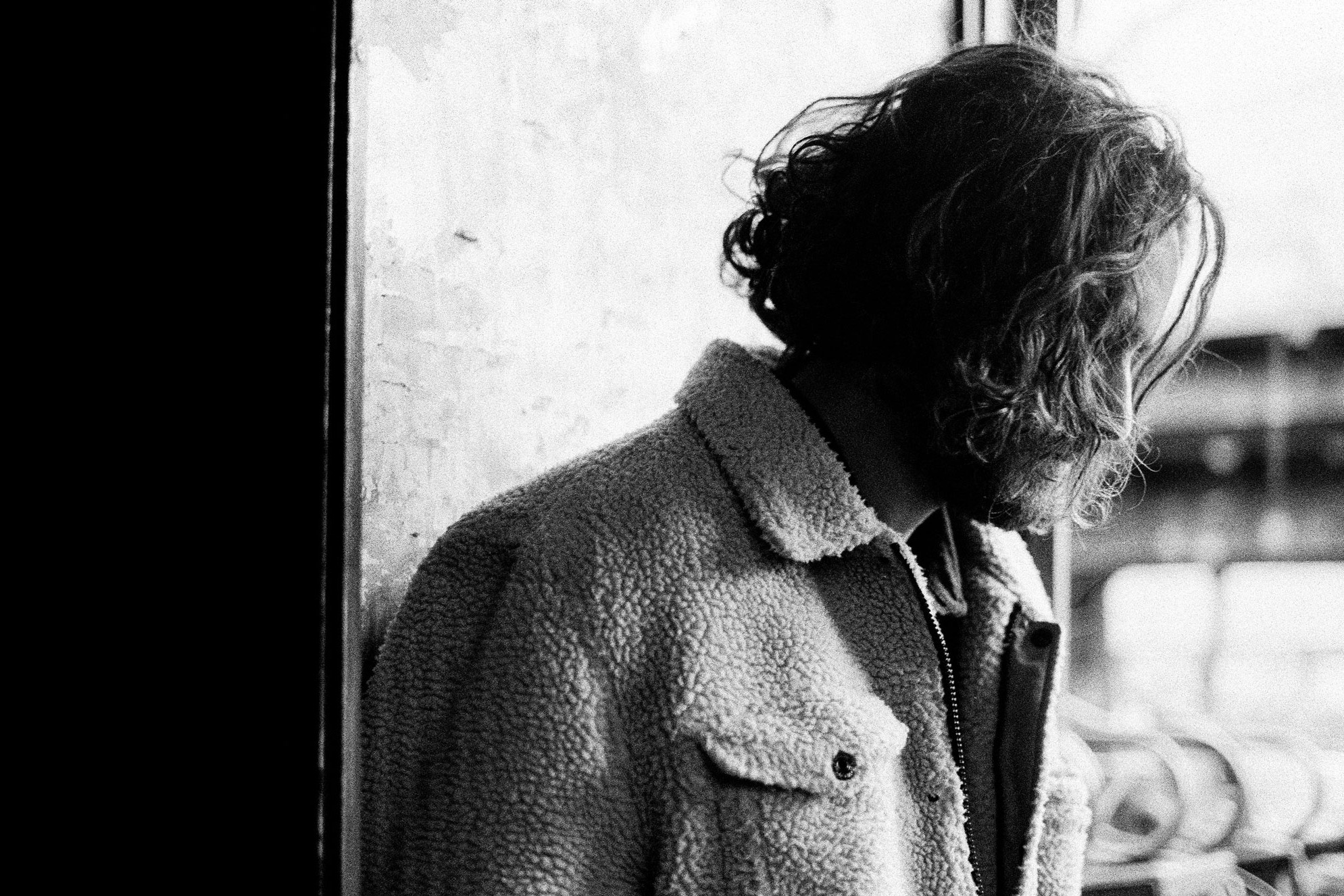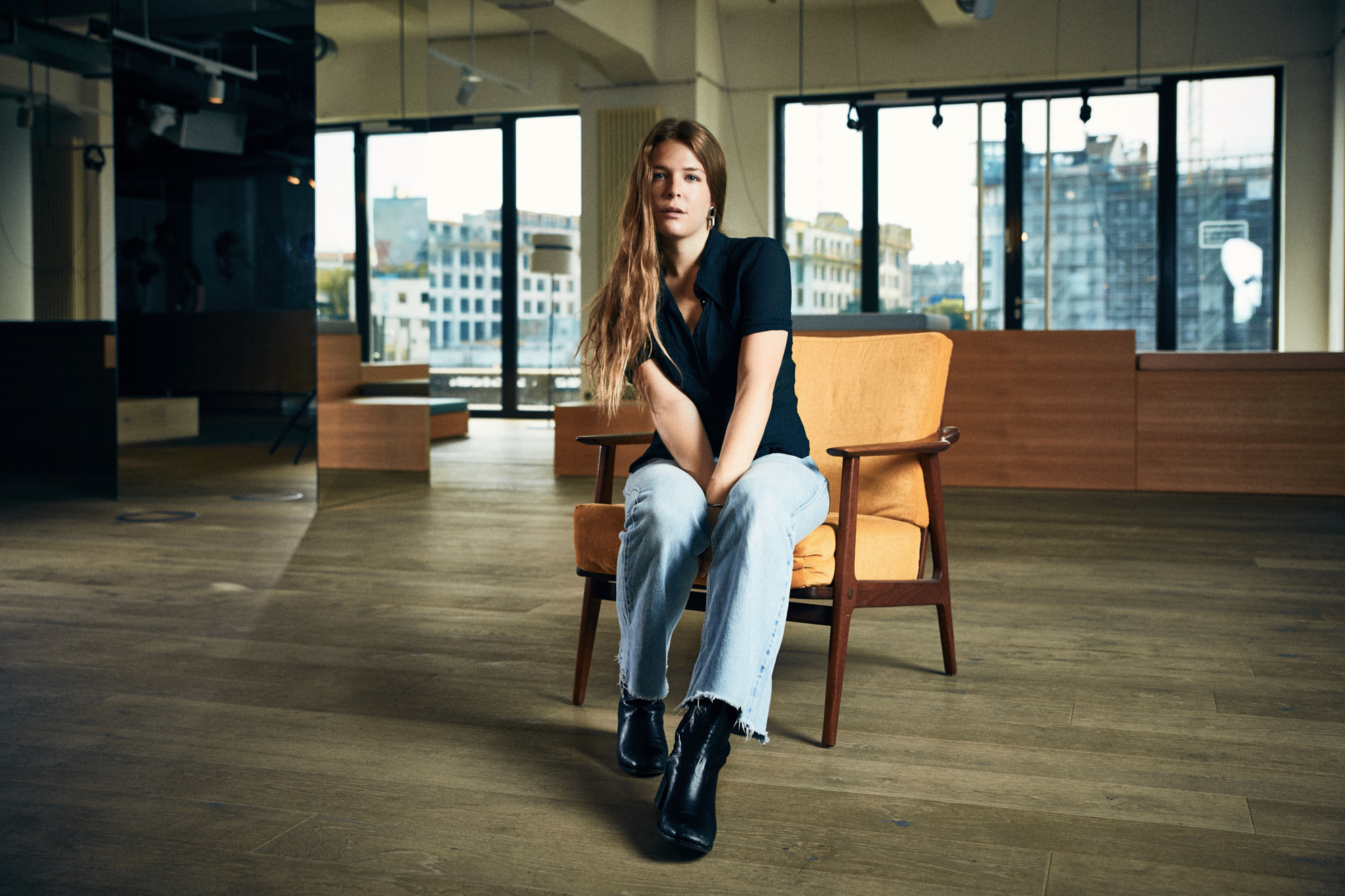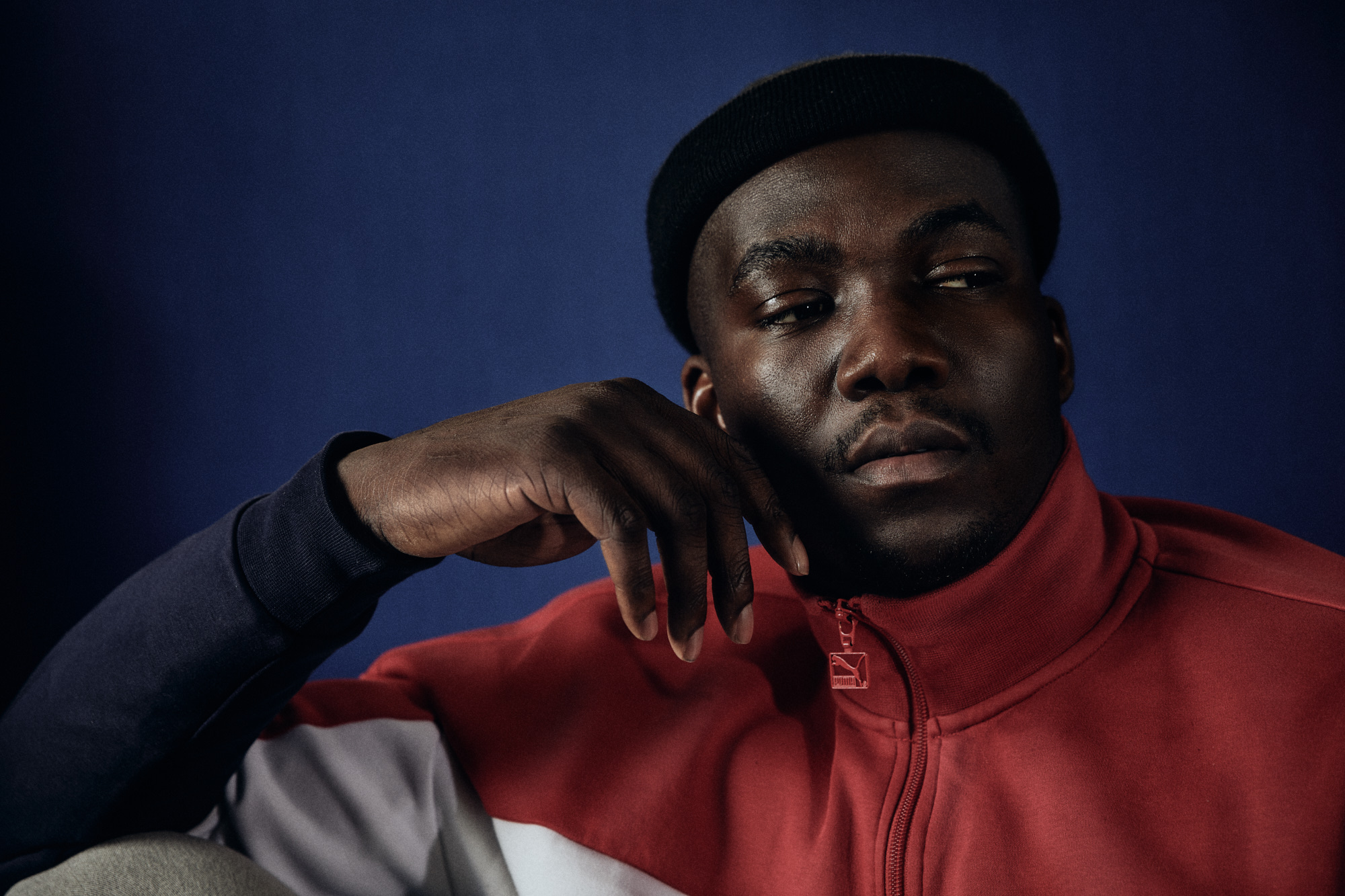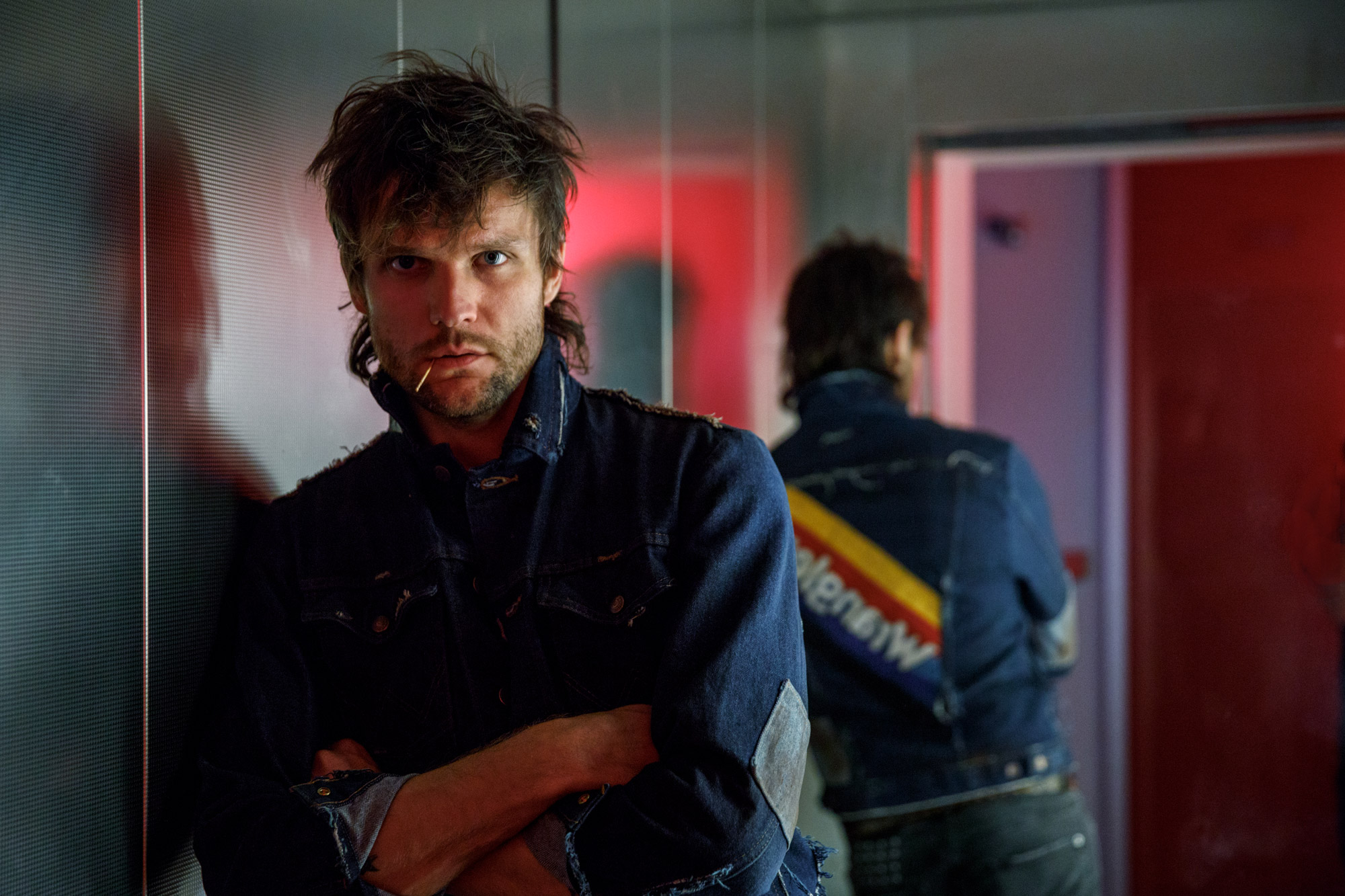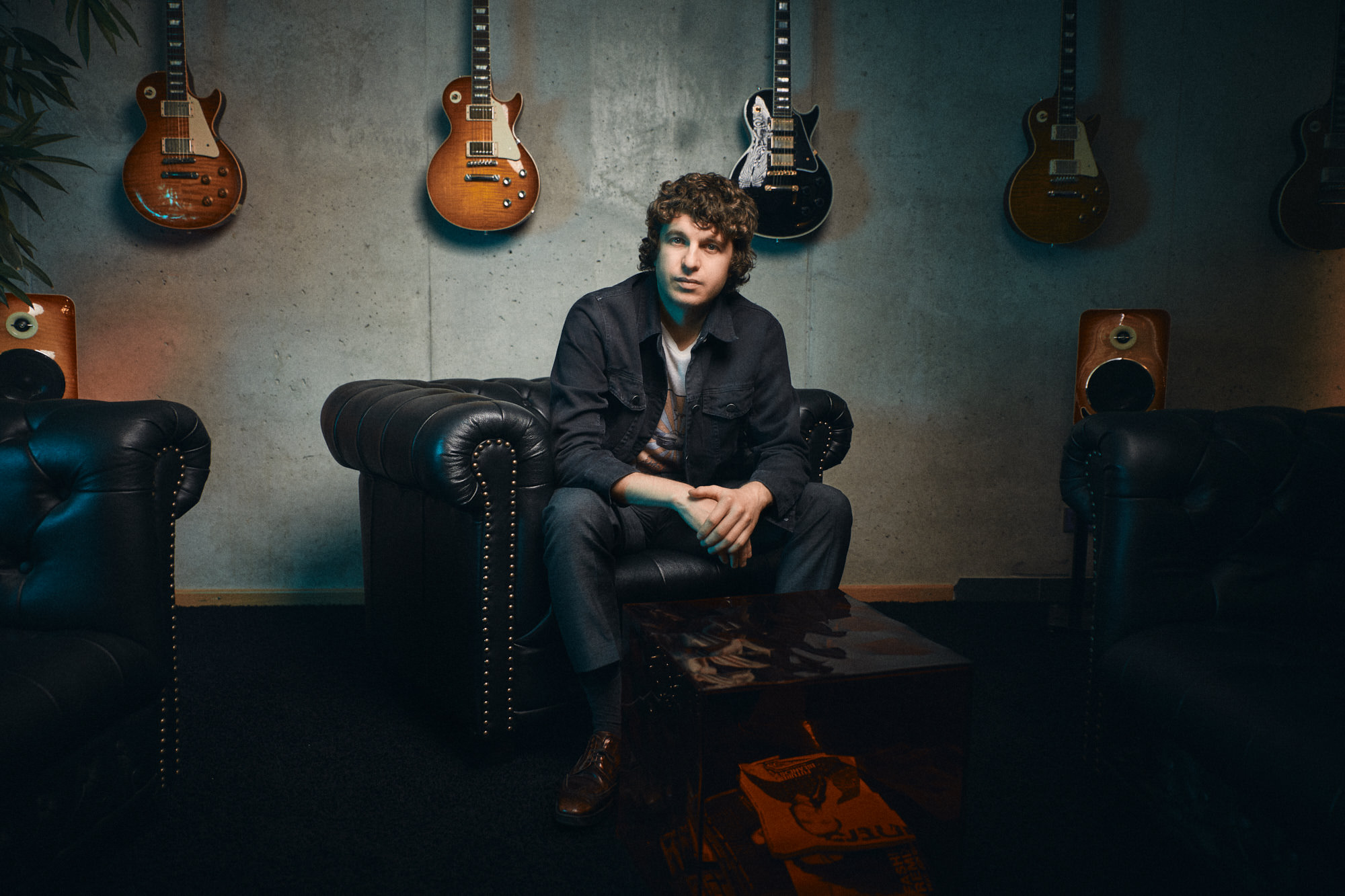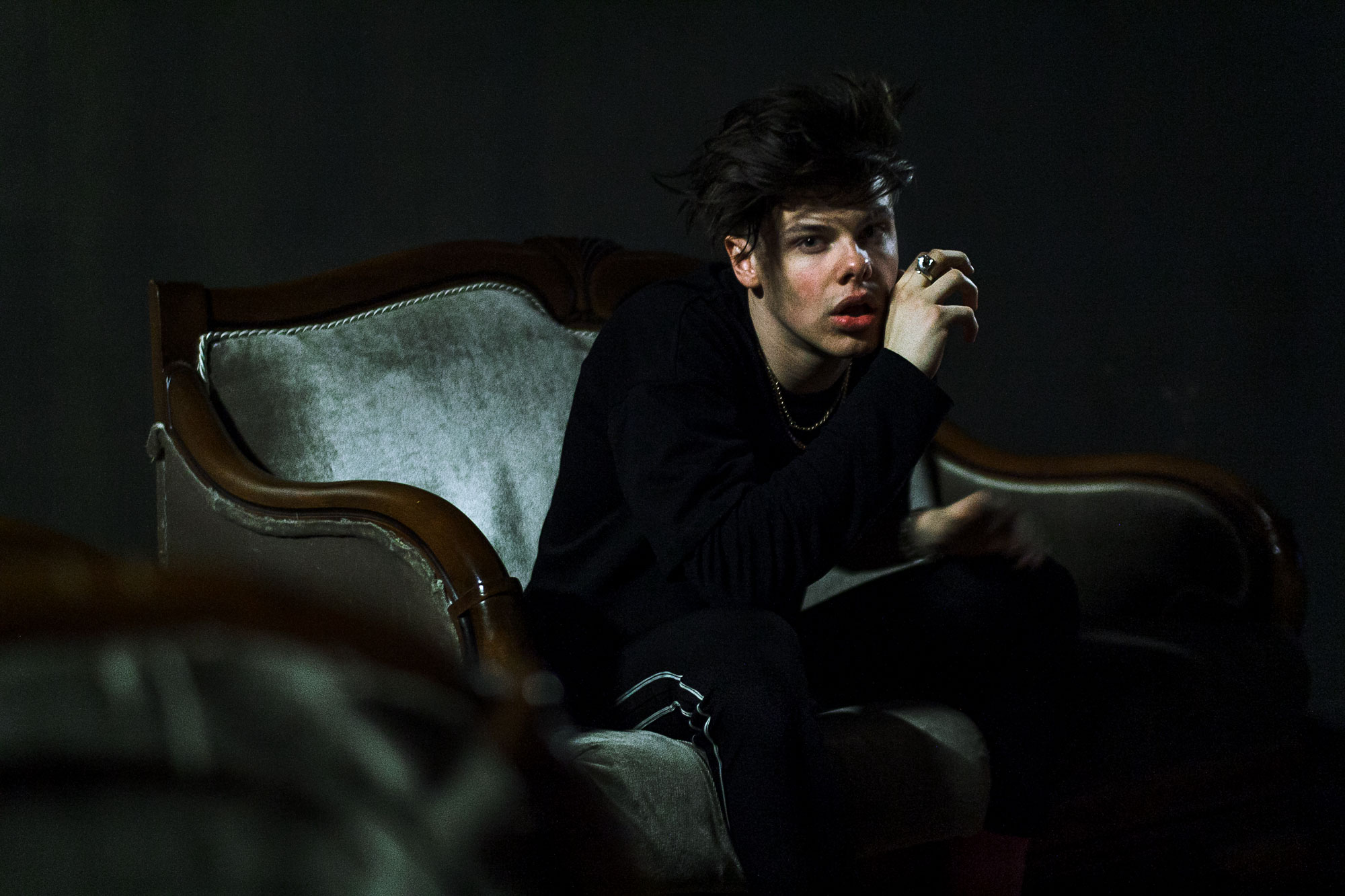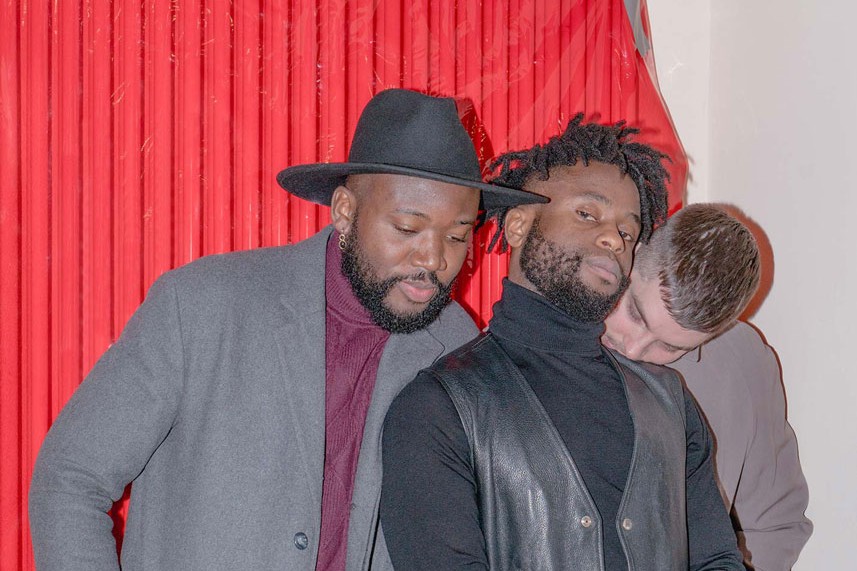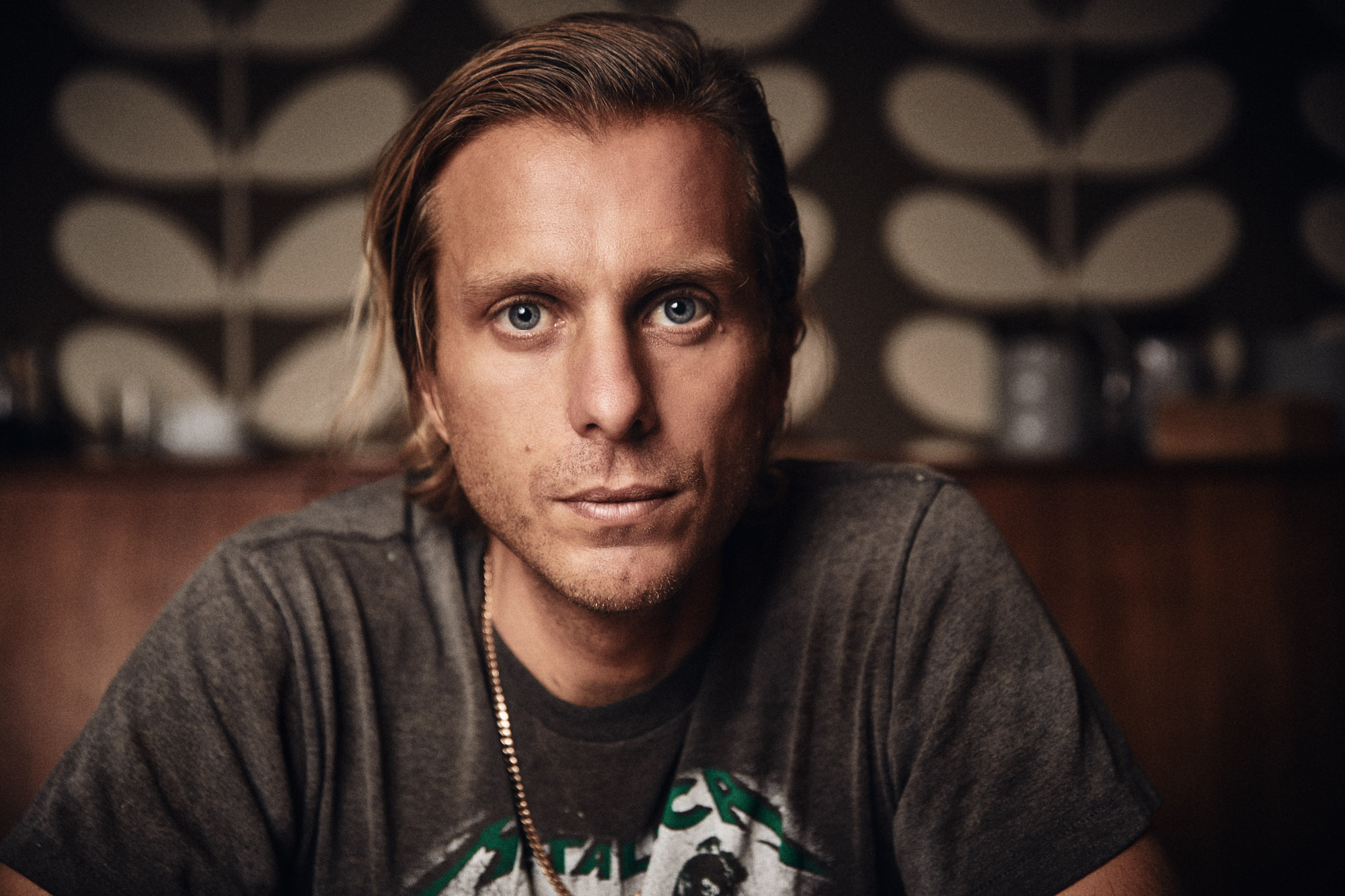Interview — Mura Masa
An Interconnective Thing
With »Raw Youth Collage,« Mura Masa has just released an album that reveals nothing less than big truths about living in our times. He manages to look at the world by looking at himself—equally indulging in nostalgia, describing the present, and facing the future. What’s more, he is supported by many striking British musical talents.
1. Februar 2020 — MYP N° 27 »Heimat« — Interview & Text: Jonas Meyer, Photography: Maximilian König

There are days in everyone’s life when you just don’t know what to think. Days on which the turmoil of your personal environment is tied so tightly with the complexity of this time that both can no longer be unraveled. You just stand helplessly in front of life and look at the world questioningly without really getting an answer. Such days leave a very strange feeling in everyone, and nobody really knows where to put it.
So, what can you do then? Music helps. Especially when it makes you feel like there is someone who understands you without asking. Someone who is able to pack your entire soul into melodies and lyrics and say things that you couldn’t have said better yourself.
From a journalistic point of view, the following statement is kind of daring, but Raw Youth Collage, the second album that has just been released by Mura Masa, a.k.a. British producer Alex Crossan, belongs to the kind of music that has the potential to really help—in particular on the days described above.
The special thing about Crossan’s new album is that R.Y.C. is primarily a look back—at a life that is extremely young at 23, but also extremely extraordinary, and extremely successful. The Guernsey-born musician and producer won a Grammy, was shortlisted for an Ivor Novello, appeared on Forbes‘ 30 Under 30, and sold more than half a million units of his debut album. If none of these accomplishments ring a bell, then at the very least you know who we’re talking about once you hear the remarkable song “Lovesick” feat. A$AP Rocky.
Alex Crossan is part of a generation that often claims to have no hope and orientation. It goes well with this that one of the first lines the young man sings on his new album is: “I don’t know who I’m supposed to be.” One of the eleven tracks on R.Y.C. is even called “No Hope Generation.” But how should such an album help, especially on days when you yourself no longer understand the world?
First, because it takes you on a musical roller coaster ride: from melancholy to nonchalance, from discouragement to confidence, from yesterday to tomorrow. Second, because Mura Masa is accompanied on R.Y.C. by a litany of young British music talents such as Clairo, slowthai, Tirzah, Georgia or Ellie Rowsell—striking artists that prove there’s a large dose of hope in the so-called no-hope generation.
On a cozy Sunday afternoon, we meet Alex for an interview and photoshoot in the almost deserted Berlin headquarters of Universal Music Germany.


»If you’re just doing the odd thing here and there, it’s hard to create something that lasts.«
Jonas:
With Raw Youth Collage, you present your second record. What does it mean to create an entire musical album in times when people collect single songs and put them into individual playlists?
Alex:
If you’re just making music for the sake of it, then it’s absolutely fine to do that with singles and stuff. But if you’re trying to write about a specific subject, I think it’s still important to make bodies of work—which is also, by the way, a nicer way to capture a little bit more of a wider kind of moment. If you’re just doing the odd thing here and there, it’s hard to create something that lasts.
Jonas:
Your album feels like there’s someone who is finally able to capture and summarize—in eleven tracks—how being a human in this world right now feels. It’s like reading a good book where you find a truth on every page that you can agree to. Has all the work on R.Y.C. left you more desperate or more hopeful in the end?
Alex:
Hmm. Personally, it left me feeling hopeful although I think some people might have a different reaction—I mean, there’s a song called “No Hope Generation” (smiles). That’s pretty cynical, maybe. But I hope that when people listen to it, they’re at least able to identify with the themes and get some emotional release. I think whenever you’re making art or music, it’s just a way of expressing yourself. And that can feel difficult at times and really good at other times. So, I think it isn’t really one of those two things you’ve said, it just is what it is.
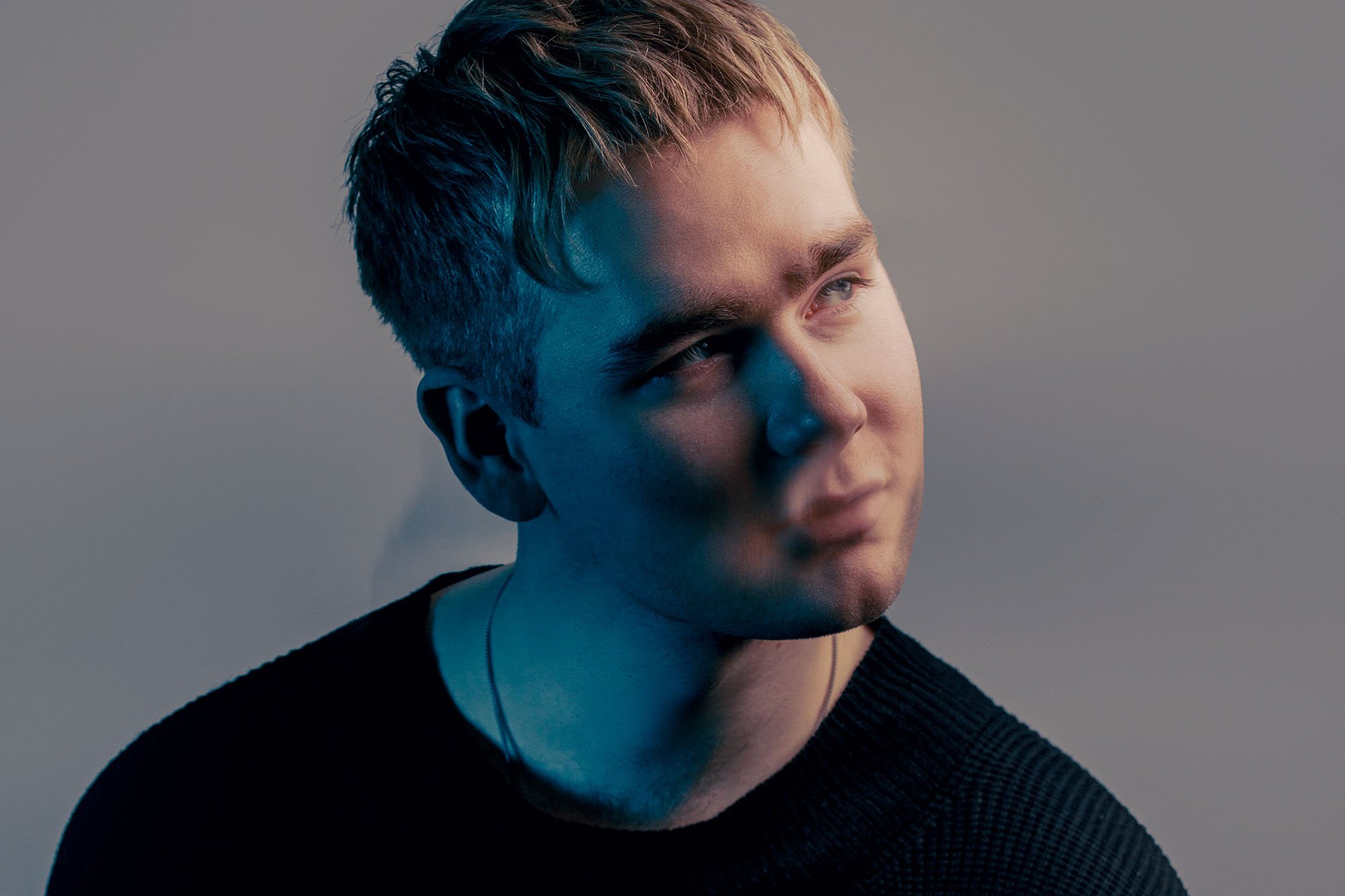
»When we were location-scouting, we noticed that Serbia has that odd familiarity to England.«
Jonas:
Especially your song “Deal Wiv It” has the potential to stand for the reality of an entire generation, underlined by a sound that could be the beat of our challenging times. Did creating the video in Serbia add another significance and importance to the song?
Alex:
Yeah! The guy who directs most of my videos is a filmmaker called Yoni Lappin. We made a lot of them in London, but for this upcoming album, we wanted the videos to still have a kind of metropolitan or city feel. At the same time, we wanted the videos to play at places that seem more unfamiliar, just to better reflect the themes of the album. When we were location-scouting, we noticed that Serbia has that odd familiarity to England, but it’s a little bit different. That’s the reason why we really wanted to film there. And, for me, there’s also the sort of connotations of filming somewhere in Europe in times when its relation to Great Britain is kind of complicated. So, it definitely added some significance I would say.
»Yoni Lappin’s work is the perfect visual analogy of what my music is doing.«
Jonas:
As a filmmaker, Yoni Lappin has been with you for quite a while. How did you guys meet?
Alex:
A very long time ago, he made a video for a song of mine, called “U.” I think he was a friend of one of my managers. What Yoni was trying to do back then was to capture candid and truthful images of young people. Today, showing people very candidly and not too posed is a very common and ubiquitous thing in filmmaking. But at that time, no one was doing that and so he brought a very fresh feeling into the whole process.
Jonas:
What do you appreciate about his work? And what does his art add to your music?
Alex:
What I’m trying to do a lot with my music is to reflect my own experiences as a young person. And I feel that the images he creates really complement that. His work is the perfect visual analogy of what the music is doing.

»We’re starting to realize how complex society is, how complex people are, how complex opinions are.«
Jonas:
In the 1950s, people were totally fascinated by the future. They couldn’t wait for tomorrow, for new technologies to come, for flying to the moon. And today, we see that more and more people glorify the past and want to restore something that maybe never existed—the so-called good old times. What do you think: Why does there appear to be such a lack of confidence and joy for the future in our society?
Alex:
I think there’s this new fear of complexity now. We’re starting to realize a lot of impact due to the internet. We’re starting to realize how complex society is, how complex people are, how complex opinions are. And we’re still grappling and coming to grips with what it means to be overconnected in that way which is very closely linked to technology. I think the longer that cycle goes on, the more fearful people are. We’re already seeing some of the negative results of things like social media—and that doesn’t mean that it’s necessarily a bad thing—but we’re seeing that there’s an anxiety and kind of a worrying around it. That causes people to try and think about: When was the time that was simpler in my life? And the answer to that is: before all this happened, sometime in the past, like these good old days…

»We need to be able to learn from the past.«
Jonas:
Let’s make it “great again.”
Alex:
Exactly. It can be a very dangerous way of thinking. But what I’m trying to say on the album is just a recognition of what we’re doing as a society. What does that mean? How can we use that for good rather than, as you say, making something “great again” that wasn’t ever great? We need to not glorify ourselves, but rather we need to be able to learn from the past. We need to be able to tap into the good things about memory, nostalgia and things like that.
»I was trying to remember some of the things that made me who I am now.«
Jonas:
There’s a spoken track on your album, “A Meeting At A Known Oak Tree,” which is a very personal story told by a guy named Ned Green. He talks about climbing into his girlfriend’s window when he was a teenager and suddenly escaping when her dad was showing up. This part of R.Y.C. reminds me of the fact that each of us is carrying very special experiences and stories with us, but when we get older, we forget many of them. Did creating your album help you remember some personal stories that you already had forgotten?
Alex:
Yes, I think so. I was kind of digging into the past a lot and trying to remember some of the things that made me who I am now. But I was also realizing that, particularly with that track, there’s a kind of nostalgia, something that can be shared communally. The story that Ned tells on the album—climbing into his girlfriend’s window and stuff—that’s something that hasn’t happened to many people, I guess. But I’m sure we all can relate to the feelings around that experience and that makes it this communal, interconnective thing. And that’s an important part of our memory.
Jonas:
And Ned’s request for a banana at the very end of his story makes it unique!
Alex:
That was the perfect way of underlining his “fuck you” attitude when doing that.

»There’s a blurry line when you’re trying to figure out your place in the world.«
Jonas:
One of the very first lines you sing on your new record is “I don’t who I’m supposed to be.” I think that’s something a lot of people can identify with because they feel the same. I’m wondering if this is a phenomenon especially of our times, or if this search for oneself has always been an issue of every generation before us.
Alex:
The search to find out who you are isn’t necessarily a new thing, but now it’s extremely overcomplicated by how much we’re exposed to other people’s lives. It’s a lot harder to place yourself in this kind of virtual place that we’re living in. You know, what you see online isn’t necessarily reflecting what’s happening in real life. There’s a blurry line when you’re trying to figure out your place in the world and what it means to be alive. So, I think it’s a major problem that always existed, but now with a new challenge and difficulty around it.

»There’s a shift towards more vulnerability in pop music.«
Jonas:
Would you say that challenging times—like the ones we’re facing right now—are kind of a fertile soil for any kind of art, especially for music? Will we look back at the 2020s in a few decades, being thankful that these challenging times fostered creativity and put forth very influential artists and meaningful artworks?
Alex:
Yeah, I think we’re about to enter that very special decade. If you look back at the 1970s or 80s, it was the birth of punk music, it all happened around a lot of very difficult societal questions in very difficult times. In my opinion, such situations always give birth to good art.
Looking at today, we’ve been having a long time now that is shaped by pop music that is very shiny and centered around electronics—I’m talking “put your hands in the air like you just don’t care” and things like that. But I really think there’s a shift towards more vulnerability in pop music, you can see it in someone like Billy Eilish, a teenage girl who is writing very intensely about her experiences. The fact that something like that is so popular says to me that people are really determined to have honesty in music. That’s why I’m pretty sure that, in a decade or two, we’ll look back to where we are now, knowing that the years of the 2020s have been a very special time in music.
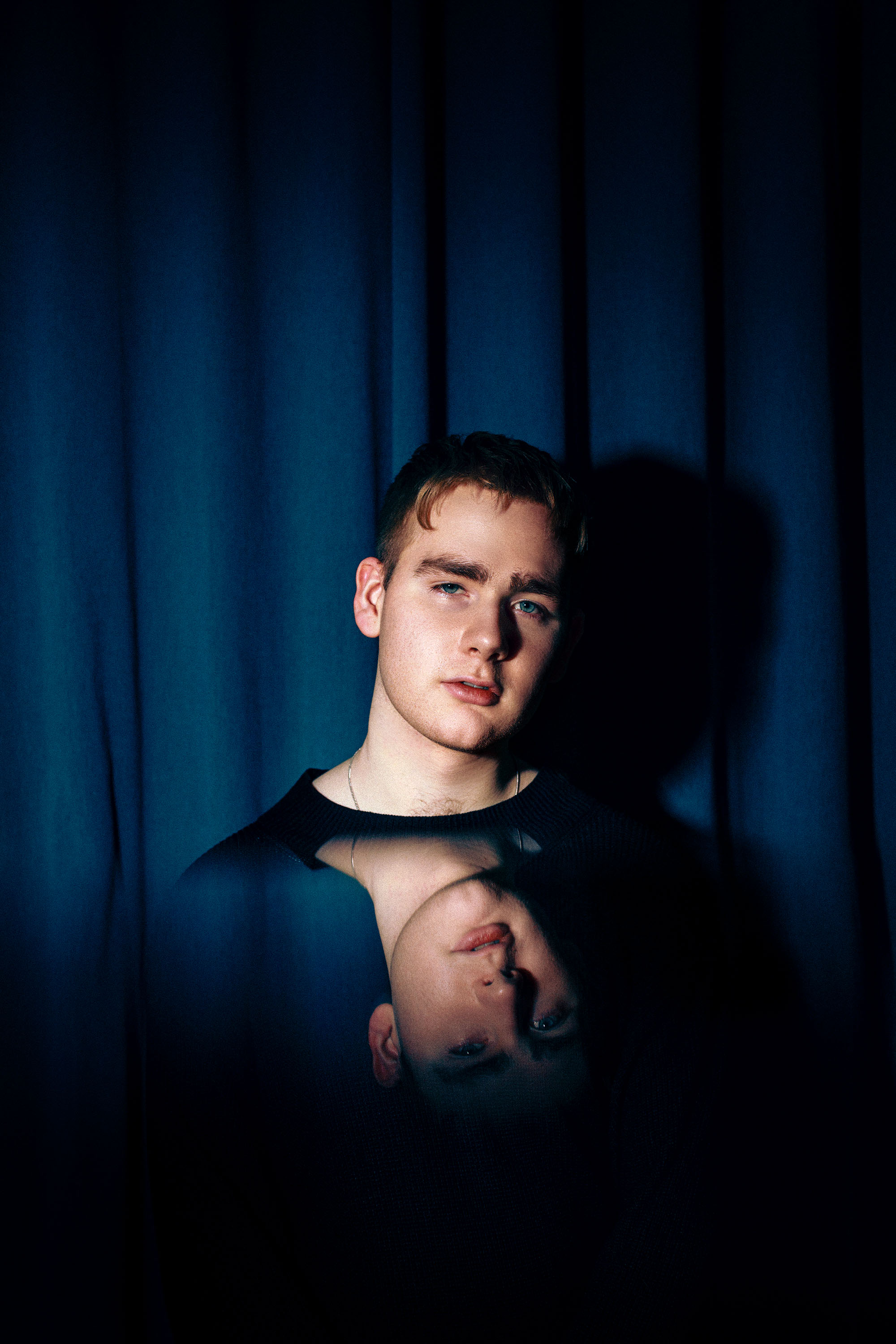
»Unfortunately, a lot of people are drifting apart from the here and now, including me.«
Jonas:
How do you look at your life right now? What is good, what is bad?
Alex:
I suppose I have a very strange life compared to my peers, being a musician (smiles). I’m starting to realize more and more what’s good about life is the people who are around you. Unfortunately, a lot of people are drifting apart from the here and now, including me. I don’t like to talk so much about social media, but due to the fact that it affects every part of our lives, I’m trying to sort of reconnect with what’s happening in the real world around me (pauses). And what’s bad about my life? Let me think about it…
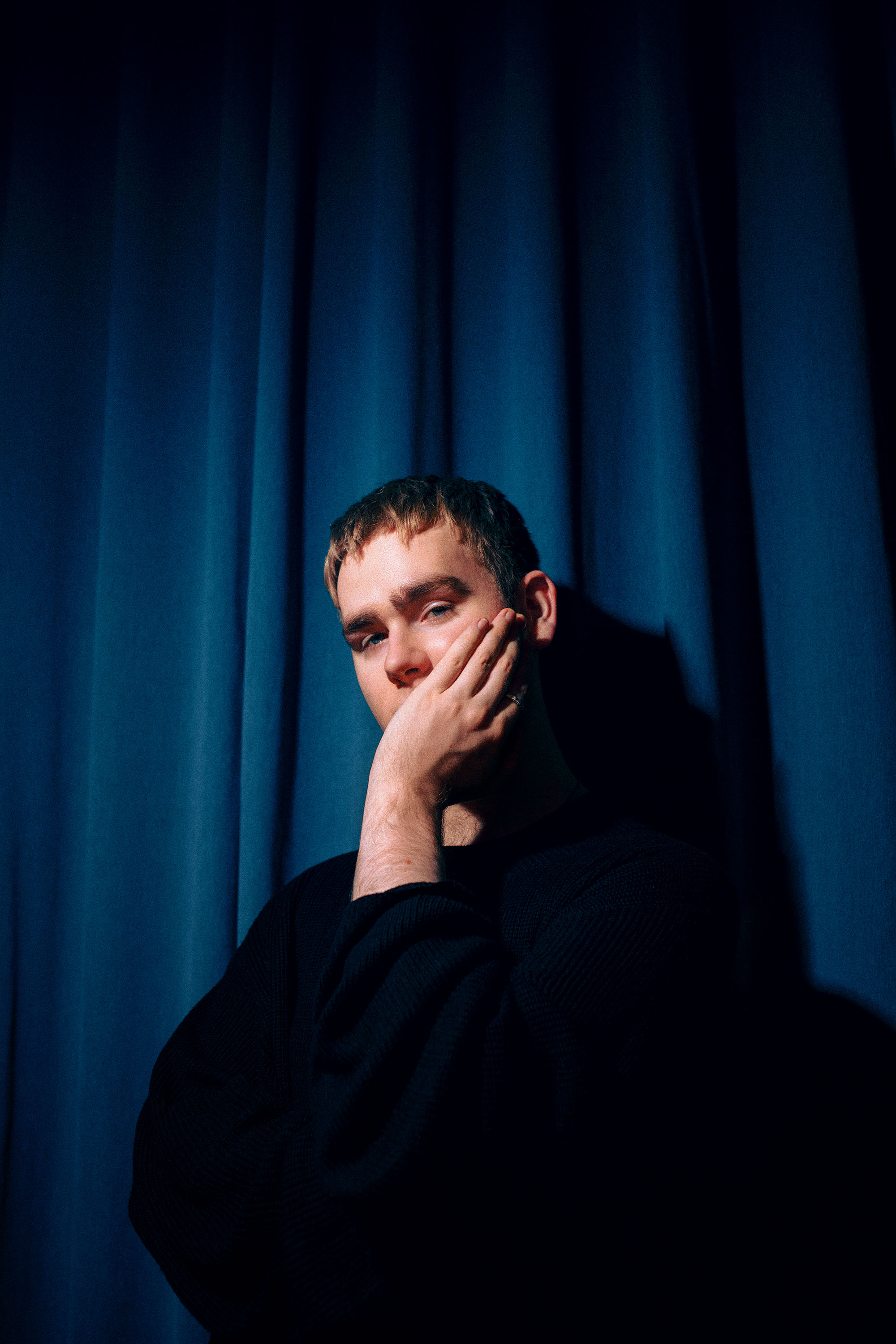
»It’s a very anxious time to be alive.«
Jonas:
Working on Sundays?
Alex (laughs):
No, that’s lovely, I get to do this. But seriously: I think I’m more anxious than ever, it’s generally a very anxious time to be alive. Obviously, there’s a lot of massive problems in the world that we can’t face as individuals. Everyone’s trying to figure out solutions for only themselves, that’s quite stressful. But, again, I feel that is a shared experience that is at least something that we can be part of as a community.
Jonas:
Do you reflect from time to time if and how all the success, the attention, and the awards have an impact on you as a person?
Alex:
Yes, I think you have to do that from time to time…
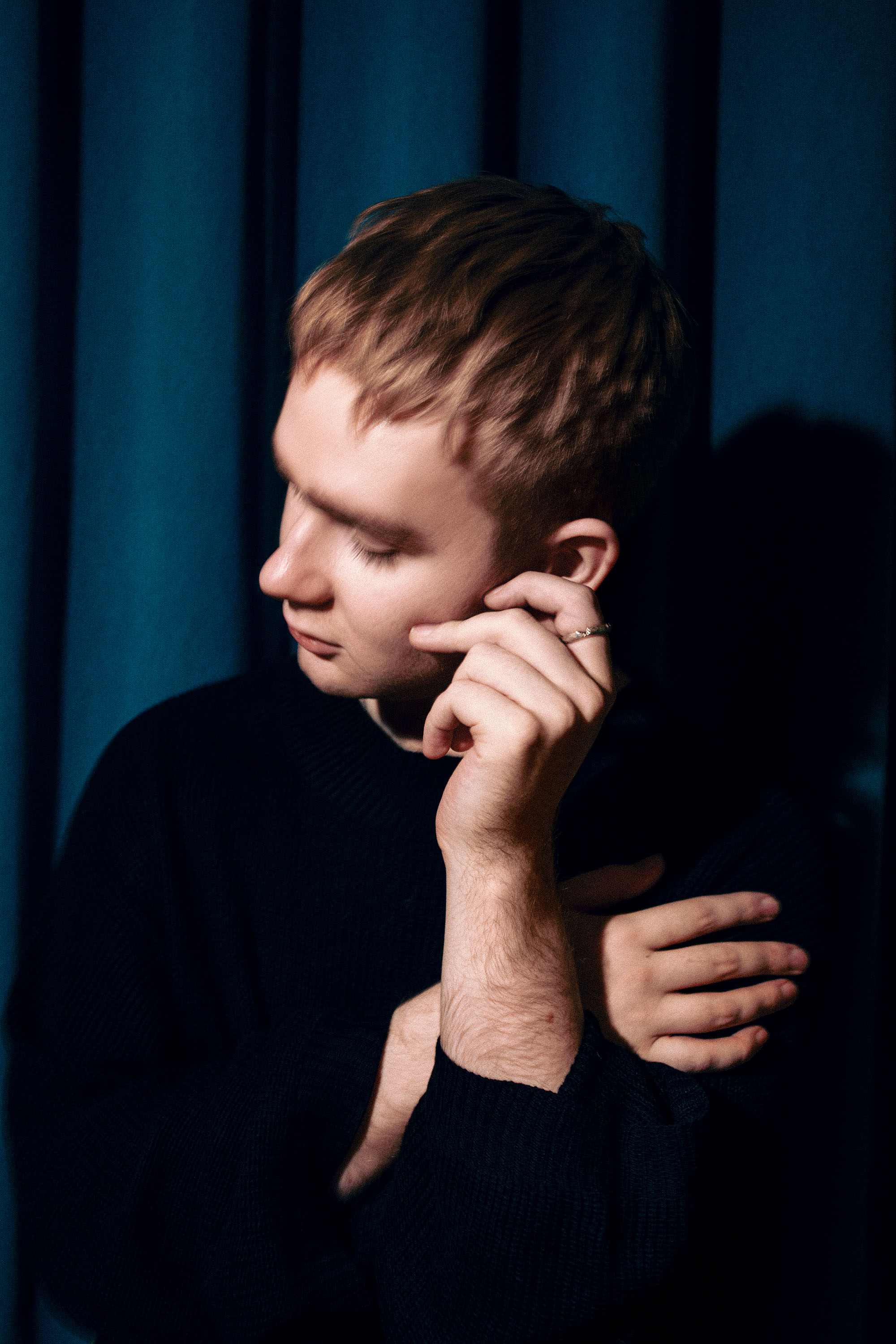
»I just try to keep engrossed in the real world and in my work as much as possible.«
Jonas:
I’m sure that not everyone in your position does so.
Alex:
Perhaps, perhaps. I mean, I’m not a very emotionally open person, so I tend to not be trying to think about how all of that affects me. But I’m sure there’s inevitably a change in how one behaves when experiencing things like that. That’s why I just try to keep engrossed in the real world and in my work as much as possible.
Jonas:
Last question: Your new album doesn’t have a “Parental Advisory” sticker on the cover. Are you disappointed or relieved?
Alex:
It should have one! There’s a lot of swearing on it. A fuckin’ lot of swearing! But to be honest, I’m relieved. I really wouldn’t have liked it if they put a sticker on it—because I’m the one who designed the front cover. And that sticker wouldn’t fit.
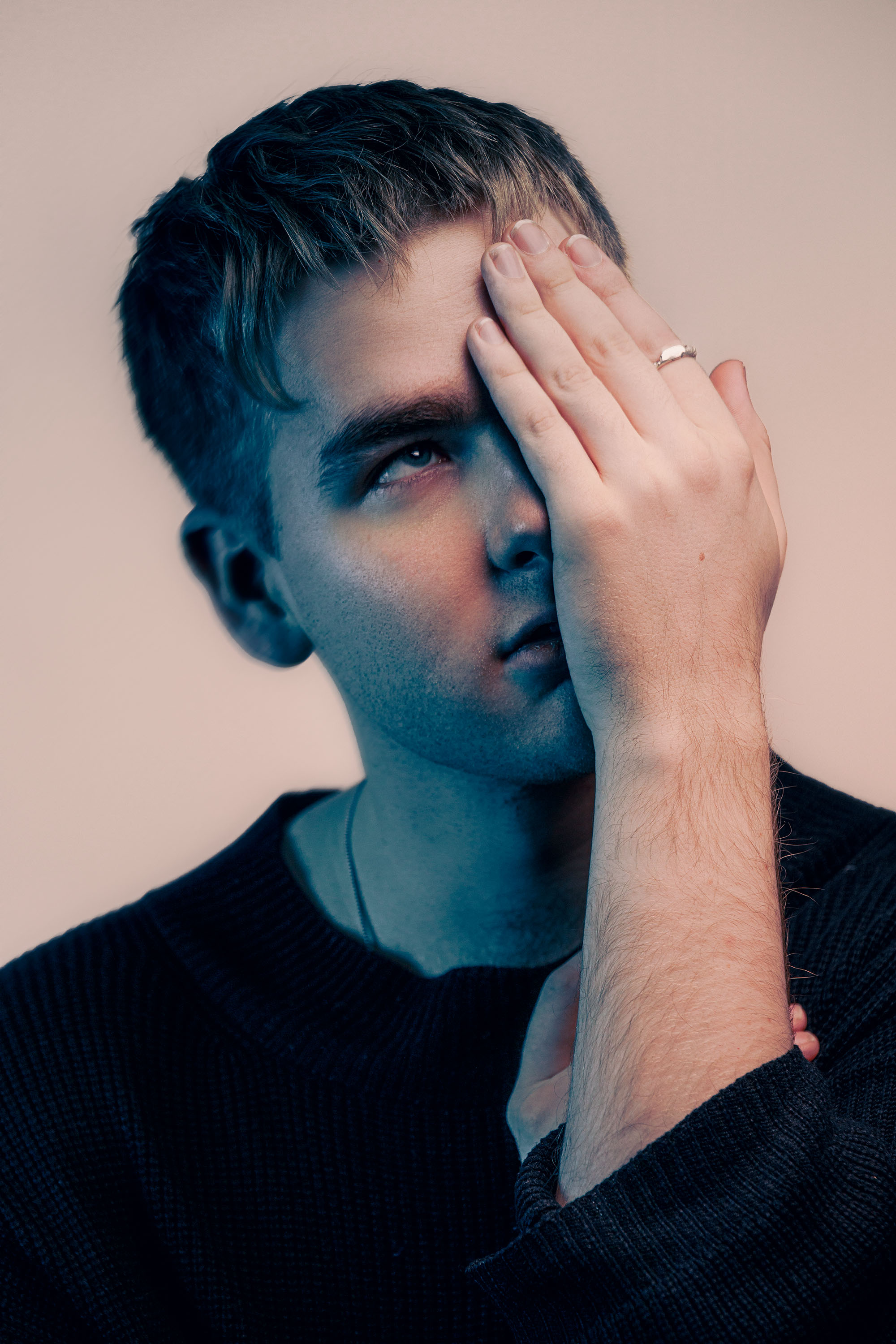
#muramasa #ryc #rawyouthcollage #maximiliankoenig #jonasmeyer #mypmagazine
More about Mura Masa:
muramasa.me
instagram.com/the_mura_masa
facebook.com/muramasamusic
twitter.com/mura_masa_
Photography by Maximilian König:
maximilian-koenig.com
instagram.com/studio.maximilian.koenig
Production assistance by Frederike van der Straeten:
Interview & text by Jonas Meyer:
Editing by Benjamin Overton:
